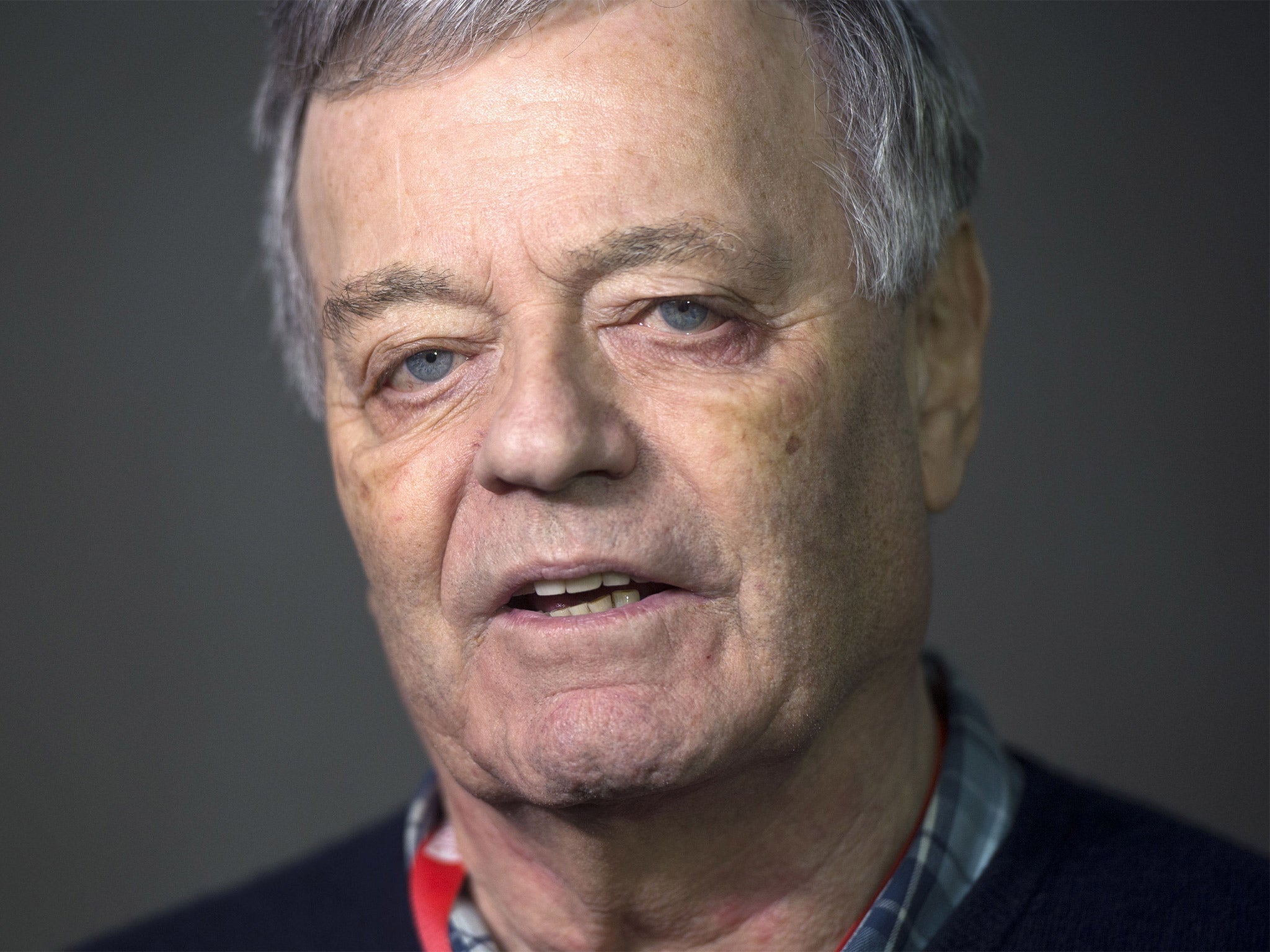Tony Blackburn: Secret memos 'show DJ was quizzed over claims he seduced 15-year-old girl'
DJ denies claims he 'seduced' a teenage girl who later killed herself in 1971

Your support helps us to tell the story
From reproductive rights to climate change to Big Tech, The Independent is on the ground when the story is developing. Whether it's investigating the financials of Elon Musk's pro-Trump PAC or producing our latest documentary, 'The A Word', which shines a light on the American women fighting for reproductive rights, we know how important it is to parse out the facts from the messaging.
At such a critical moment in US history, we need reporters on the ground. Your donation allows us to keep sending journalists to speak to both sides of the story.
The Independent is trusted by Americans across the entire political spectrum. And unlike many other quality news outlets, we choose not to lock Americans out of our reporting and analysis with paywalls. We believe quality journalism should be available to everyone, paid for by those who can afford it.
Your support makes all the difference.New documents have emerged allegedly showing that Tony Blackburn was interviewed by BBC bosses in 1970s over claims he “seduced” a teenager who later killed herself.
The veteran DJ claimed he had been “scapegoated” by the BBC in the wake of the report published into child sex abuse by Jimmy Savile at the corporation published on Thursday.
Mr Blackburn was dismissed by BBC Director-General Lord Tony Hall after the report's author Dame Janet Smith dismissed the his evidence as “inconsistent”.
Secret documents obtained by the Mirror allegedly show that he was interviewed by BBC bosses in 1971 over claims made by Vera McAlpine that Mr Blackburn had “seduced” her 15-year-old daughter Claire who died of an overdose.
In the papers, it is reported the BBC’s Assistant Head of Variety Tony Preston and Head of Light Entertainment Bill Cotton apparently said they had interviewed Mr Blackburn about the allegations and he issued a “flat denial”.
The papers also reportedly reveal the entertainer was interviewed again several times over the following year after a string of scandals at Top of the Pops - where Claire worked as a dancer.
It is said Mr Preston wrote: “[Mr Blackburn] told me that the girl had come to see him on several occasions and had invented stories for the purpose of getting access to him. He said she seemed to him in a sort of fantasy world but that she had not made any sexual advances.”
Mr Blackburn has continued to deny the alleged interviews took place and said he stood by the evidence he “voluntarily” gave to the BBC.
On Friday, he issued a statement saying the BBC "scandalously" sacked him for "telling the truth".
The veteran DJ said: "Material from so-called 'secret BBC memos' from 1971 and 1972 has been published today as part of an attempt by the BBC to 'prove' that I was interviewed about the Claire McAlpine allegations 45 years ago.
"In fact there is no secret at all about these documents. I was made aware of them in 2012 and, again, when I voluntarily gave evidence to Dame Janet Smith's enquiry. The evidence which I gave her was with the full knowledge of their existence and contents.
"As I told her, and have repeated publicly since, the contents of these documents are untrue. It is simply not true that I was interviewed by anyone at the BBC in 1971 or 1972 about these matters.
"The memos are part of the whitewash and cover-up which regrettably characterised the BBC's handling of these allegations.
"There is no possible reason for me to do anything other than tell the truth about these matters since there was never any inappropriate behaviour between myself and Claire McAlpine and the investigations that the BBC says took place all supposedly led to my exoneration. The complaint was withdrawn shortly after it was made and subsequent coroner's and police enquiries also accepted there was no substance to it.
"Scandalously, the BBC has placed me in the ridiculous position of being sacked for telling the truth about an investigation which it failed to carry out properly, if at all, into a complaint made against me 45 years ago - a complaint which was totally without any basis in truth.
"In linking my dismissal to the Dame Janet Smith Report the BBC has, as well as taking away the livelihood I loved, caused my good name to be tarnished."
The 73-year-old has denied any wrongdoing and said he had “no choice” but to sue the corporation for his dismissal.
He said: "Given Dame Janet Smith’s concerns of a culture of fear in coming forward at the BBC, the fact that I have been scapegoated for giving my honest account and best recollections of those events 45 years ago, which I felt was a whitewash, what whistleblower at the BBC would ever come forward when they see the way they have hung me out to dry?”